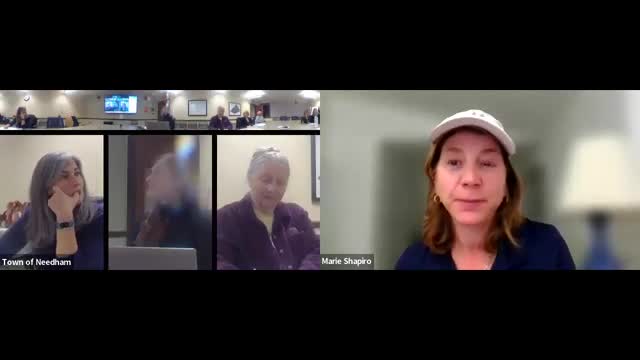Needham police: department will not enforce civil immigration detainers, urges victims to report crimes
Get AI-powered insights, summaries, and transcripts
Subscribe
Summary
Needham Police Chief Schittler told the Human Rights Committee the department cannot enforce federal civil immigration detainers under Commonwealth case law, and said local officers will prioritize public-safety reporting and working with schools and community liaisons.
Chief Schittler, Needham’s police chief, told the Human Rights Committee that local officers cannot enforce federal civil immigration detainers and urged residents — including those who are undocumented — to report crimes without fear of local police arrest leading to immigration custody.
The chief cited Commonwealth v. Lunn (2017) as the state-level judicial guidance governing local police conduct: “we can't enforce federal law,” he said, adding that “we can't enforce those civil detainers nor can we hold anybody on those civil detainers.” He said local officers will comply with judicially issued warrants and will assist federal authorities in criminal matters where there is a signed warrant or serious criminal history, but not where the only request is a civil immigration detainer.
Why it matters: The statement clarifies the department’s role amid heightened public concern about federal immigration enforcement. Committee members asked whether town resources such as community outreach officers can assist residents who fear immigration-related consequences; Schittler confirmed those local liaisons remain available and are not required to report immigration status to federal authorities.
In the meeting, the chief described the practical handling of arrests: if an arrestee is to be booked and transported to court, a federal request to hold someone on a civil detainer will not stop the department from delivering the arrestee to the court process. He emphasized the distinction between civil detainers and judicial warrants: local police will respond to and assist on matters that involve judicial warrants signed by a judge.
Committee members raised questions about recent federal changes to “sensitive locations” policy, including whether houses of worship or schools remain protected from enforcement actions. Schittler said the federal policy that had marked some locations as sensitive has been rescinded and that, while federal agents with a judicial warrant could execute it in any location, he has not heard of local instances where agents entered churches or schools to remove people. He encouraged organizations that receive visitors claiming to have warrants to call local police so officers can verify documents and identity, noting that “95% of the time they check in with us.”
The chief said department staff have coordinated with Needham Public Schools — referencing conversations with Superintendent Dr. Michael Gutekanst — on protocols for responding to immigration-related concerns in and around schools. He also offered to supply the committee with a written summary of his remarks and guidance to distribute further.
Ending: Chief Schittler closed by asking committee members to direct residents with concerns to the department’s community outreach resources. He stressed the department’s intent to maintain public safety while observing legal limits on enforcing federal immigration policies.
